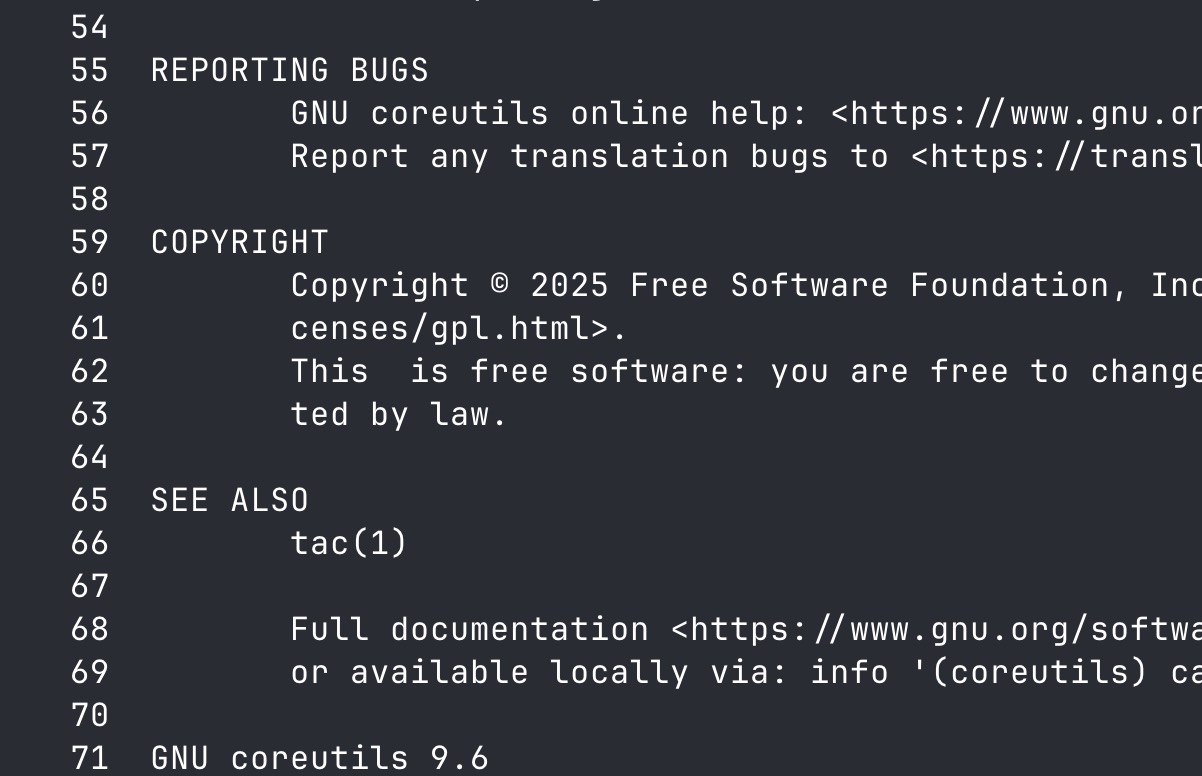When to use "cat -n" instead of "wc -l"
Problem
wc -l is pretty good at counting lines, it’s what most people use
# man cat | wc -l
71Except that it collapses all your data to a single number.
There’s nothing wrong with that if you’re only trying to get the answer.
But when you’re building long one-liners with multiple pipes, it’s useful to answer two questions at the same time
- how many lines is that?
- are those lines what I expect?
Quizzes
For example:
- does
seq 3 14include 14 or not? - how many numbers is that?
show answers
# seq 3 14 | cat -n
1 3
2 4
3 5
4 6
5 7
6 8
7 9
8 10
9 11
10 12
11 13
12 14How about:
- how many 5-letter English words have a
bin the 2nd letter and end witht? - what are they?
- do they all start with
a?
show answers
# look . | grep '^.b..t$' | cat -n
1 abaft
2 abbot
3 abdat
4 abnet
5 abort
6 about
7 abret
8 absitcat -n
The cat command doesn’t have too many flags, but more than I expected. The exact details will depend on the GNU or BSD variant.
-n, --number
number all output lines
So, while it seems that you might only use cat -n to print a file with line numbers, keep in mind that the last line number is wc -l
